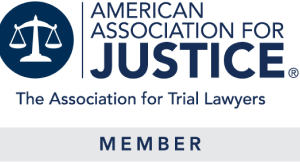for You
Alaska Car Accident Lawyer
If you’ve recently been involved in a car accident in Alaska, securing qualified legal representation should be your priority. Choosing the right car accident attorney can make the difference between a fair resolution and financial distress. The Brown Law Firm focuses on car accident cases throughout Alaska. Our team has a robust track record of securing justified compensations for their clients. Having extensive experience and dedication, the Brown Law Firm is your ideal lawyer in navigating the complexities surrounding car accident cases in Alaska.
Car accidents occur in Alaska far more often than one would hope. These incidents can be caused by various factors such as adverse weather conditions, vehicle malfunctions, or more commonly, the negligence of those involved. Alaska car accident attorney, Sean Brown of The Brown Law Firm, has extensive experience representing individuals who have sustained life-changing injuries due to auto accidents. He has a deep understanding of the physical, emotional, and financial struggles faced by these victims and is committed to achieving justice for them.
If you have been injured in a car accident in Alaska, you should:
- Contact emergency services: Ensure that everyone involved receives necessary medical attention.
- Document the accident scene: Take photographs or videos, if you can, of the accident scene, vehicle damage, any visible injuries, and other pertinent details of the car crash.
- Report the accident to the police: This is a crucial step for your legal proceedings.
- Seek immediate medical attention: Even if you feel fine, get checked by a health professional, as some injuries may not be immediately apparent.
- Notify your insurance company: Inform them about the accident and any damage or injuries.
- Keep a record of all expenses: This includes medical bills, repair costs, and any other expenses related to the accident.
- Limit discussion about the accident: Only speak about the accident to your car accident attorney, your insurance company, and the police.
- Contact a reputable car accident lawyer: They can guide you through the process and help you secure a fair compensation.
What to do After a Car Accident that You Did Not Cause
The moments following a car crash can be overwhelming, particularly if the accident was not your fault. However, there are steps you can take to protect your rights and ensure your interests are safeguarded.
- Stay at the scene and call for help: It’s crucial to remain at the scene of the accident and immediately dial 911 to report the incident. Leaving the scene prematurely could potentially be interpreted as hit and run, which is a serious criminal offense.
- Seek medical attention: Even if you think you’re uninjured, it’s essential to get a medical evaluation following the accident. Some injuries may not be readily apparent in the immediate aftermath of a crash.
In the subsequent days following the motor vehicle accident, there are further measures to take:
- Document the accident: Compile a comprehensive record of the automobile accident. This includes photographs of the accident scene, testimonies from eyewitnesses, and any medical reports pertaining to injuries sustained from the accident.
- Contact your insurance company: Report the car accident to your insurance provider as soon as possible. Be sure to present the facts accurately and honestly.
Finally, consult with a car accident attorney:
- Consult an attorney: Engage an experienced car accident lawyer who can assist you in navigating the complex legal landscape. An attorney can ensure that you are adequately compensated for your injuries and any damage to your vehicle.
- Avoid discussing the accident: Until you have consulted with your attorney, avoid discussing the accident or making statements to the at-fault party’s insurance company as they may be used against you in future legal proceedings.
How long do you have to file a lawsuit after a car accident in Alaska?
In Alaska the statute of limitations for filing a car accident claim is typically two years from the date of the accident. This means that you have a two-year window to file a lawsuit against the at-fault party for personal injury or property damage. It’s important to note that this deadline applies to civil lawsuits and not insurance claims.
The deadline for insurance claims can vary depending on your policy, so report the motor vehicle accident to your insurance company as soon as possible to ensure that your claim is processed within the required time frame.
Proving that you were not at fault in a car accident
Proving that you were not at fault in a car accident is a crucial part of the claim process. It involves gathering comprehensive evidence and presenting a convincing argument that clearly demonstrates the other party’s liability. This might seem daunting, especially after such a traumatic event, but with the right approach, you can strengthen your case and increase your chances of securing a fair settlement.
When establishing fault in a car accident, consider the following steps:
- Collect and organize evidence: This includes photographs from the scene of the accident, witness accounts, police reports and any available video footage. You can also use any damage to the vehicles involved to help show the impact and direction of the crash, which can aid in determining fault.
- Seek expert testimonies: A professional accident reconstruction expert can provide a detailed analysis of the motor vehicle collision, further supporting your claim. Similarly, medical reports from healthcare providers can confirm the extent and cause of your injuries.
- Engage your lawyer: Your car accident attorney can effectively communicate this evidence, contesting contrary claims from the other party. They can also guide you through the legal process and negotiate on your behalf.
In Alaska, determining who is at fault in a car accident involves a thorough investigation of the incident. The state follows a ‘fault’ system when it comes to car accidents, meaning that the driver who caused the accident is responsible for any damages resulting from the collision. It is typically the role of the insurance companies to decide who is at fault based on evidence from the accident scene, police reports, witness testimonies, and other relevant information.
Some reasons another driver may be at fault:
- Reckless Driving: The driver was driving recklessly, showing a total disregard for the safety of other motorists.
- Speeding: The driver was exceeding the legal speed limit at the time of the accident.
- Distracted Driving: The driver was texting, eating, grooming, or otherwise not fully focused on the road.
- Drunk Driving: The driver was under the influence of alcohol or drugs.
- Violation of Traffic Laws: The driver failed to adhere to traffic rules such as stop signs, yield signs, or traffic lights.
- Improper Lane Change: The driver switched lanes without checking blind spots or signaling.
- Tailgating: The driver was following too closely behind another vehicle, resulting in a rear-end collision.
- Defective Vehicle: The driver was operating a vehicle with known defects or failed to maintain the vehicle properly.
- Illegal Turn: The driver made an illegal turn or U-turn, causing the accident.
- Falling Asleep at the Wheel: The driver was drowsy or fell asleep while driving.
- Failure to Adjust to Weather Conditions: The driver did not adjust their driving behavior according to the weather conditions.
- Leaving the Scene: The driver committed a hit-and-run, leaving the scene of the accident without stopping to exchange information or provide assistance.
Injuries and Insurance Adjustments
Injuries from car accidents can range from minor to severe, including head trauma, whiplash, neck and back injuries, broken bones, and dislocated joints. It is crucial to seek immediate medical attention following a car accident, not just for health purposes but also to document the injuries sustained. The next step is to notify your insurance company about the incident and the damages incurred, but be aware that you are not obligated to offer a recorded statement during the first conversation.
Pursuing Compensation
If you’re injured due to someone else’s negligence in Alaksa, you are entitled to seek compensation from the other driver’s insurance company. A skilled Anchorage car accident lawyer can guide you through this process and help you recover compensation for lost wages and medical expenses. However, it’s also important to understand that Alaska adheres to the comparative negligence rule, which implies that the compensation you receive will be proportionate to your contribution to the accident.
Comparative negligence means that the fault for an accident is not always allocated to one driver exclusively but can be shared between the parties involved. Under this system, each party’s degree of fault is assessed, and any compensation awarded is adjusted accordingly. For example, if you are found to be 20% at fault in an accident, any damages awarded to you will be reduced by 20%. This highlights the importance of having comprehensive evidence to substantiate your claims and demonstrate the extent of the other party’s liability. It’s crucial to understand this aspect of Alaska’s negligence laws when pursuing a car accident claim, as it directly influences the potential compensation you might receive.
Financial Strains and Legal Assistance
Car accidents often result in more than physical injuries. Many victims face financial instability due to loss of wages and mounting medical bills. In such cases, a car accident attorney can assist you in securing a settlement and managing the stress of an insurance claim. Engaging a personal injury attorney like The Brown Law Firm to handle your case can be advantageous in several ways.
How Much Am I Entitled to Recover for My Car Crash In Alaska?
In Alaska, the amount you are entitled to recover after a car accident depends greatly on the specific details of your case. Factors such as the severity of your injuries, the extent of property damage, your part in contributing to the accident, and the effect of the accident on your earning capacity can significantly impact the settlement amount.
Generally, you can seek compensation for medical expenses, lost wages, property damage, and pain and suffering. If the accident caused permanent disability or disfigurement, you might also be eligible for increased compensation.
However, as previously mentioned, Alaska follows the ‘pure comparative negligence’ rule. This means that if you are found to be partially at fault for the accident, your compensation will be reduced by your percentage of fault. For example, if you are found to be 30% at fault and your damages total $100,000, you will be able to recover $70,000. Thus, determining the worth of your claim isn’t straightforward, and it is strongly recommended to consult with an experienced Anchorage car accident attorney to ensure you receive the maximum compensation possible.
Compensation Recovery
Victims of car accidents are typically eligible for compensation for their injuries, losses, and other damages resulting from another party’s negligence. This may include lost income, medical treatment costs, pain and suffering, property damages, vehicle repairs, and in some cases, punitive damages. Our firm is dedicated to ensure you receive the maximum compensation applicable to your case.
In an injury lawsuit in Alaska, the types of damages you might be eligible to receive compensation for include:
- Medical Expenses: Compensation for medical bills incurred due to the accident, including hospital stays, surgeries, rehabilitation therapy, and future medical needs related to the injury.
- Lost Wages: Compensation for lost income if your injuries prevented you from working. This can also include loss of earning capacity if you’re unable to earn the same amount as you did before the accident.
- Property Damage: Reimbursement for repair or replacement of property damaged in the accident, such as your vehicle.
- Pain and Suffering: Monetary compensation for physical pain and emotional suffering you have endured as a result of the accident.
- Emotional Distress: Compensation for psychological impact triggered by the accident, including anxiety, depression, or post-traumatic stress disorder (PTSD).
- Loss of Enjoyment: Compensation for the loss of enjoyment of day-to-day pursuits like hobbies, exercise, and other recreational activities.
- Loss of Consortium: Damages awarded if the accident has negatively affected the relationship between you and your spouse, including loss of companionship or inability to maintain a sexual relationship.
- Punitive Damages: These are awarded in cases of gross negligence or intentional misconduct to punish the defendant and deter similar behavior in the future. Although not common, they can be significant in certain cases.
What Is Underinsured Motorist Coverage?
Underinsured Motorist (UIM) coverage is a type of auto insurance that protects you when you’re involved in a car accident with a driver whose insurance coverage is insufficient to cover the costs of your injuries and damages. In such cases, your UIM coverage steps in to cover the gap, providing you with the necessary compensation to cover your medical bills, property damage, and other related costs. Notably, UIM coverage is not mandatory in every state, but it can be a lifesaver if you’re involved in an accident with a driver who has insufficient coverage.
Having UIM coverage is especially beneficial when the at-fault party’s insurance limit is exhausted, and you are still left with unpaid medical bills or damages. Your UIM coverage will take care of these extra expenses, ensuring you’re not out of pocket for an accident that wasn’t your fault. It’s also worth noting that UIM coverage can extend to other passengers in your vehicle at the time of the accident, providing them with the same financial protection against underinsured drivers.
- Financial Protection: UIM coverage provides added financial protection by covering the difference between the at-fault party’s insurance limit and the total cost of your damages.
- Coverage for Passengers: UIM coverage extends to other passengers in your vehicle, ensuring their medical bills and other damages are also covered.
- Compensation for Long-Term Care: If you’re seriously injured and require long-term care, UIM coverage can help cover these ongoing medical costs.
- Protection Against Uninsured Drivers: UIM coverage also protects you in the event you’re involved in a hit-and-run accident or an accident with an uninsured driver.
- Peace of Mind: Last but not least, having UIM coverage gives you peace of mind knowing that you’re financially protected, no matter who is at fault in an accident or how much insurance they have.
Why Hire an Anchorage Car Accident Attorney?
Following a car accident, it can feel like your life has been turned upside down. You may find yourself dealing with uncooperative drivers, insurance companies offering less than you need, and a host of other legal complications. Here’s where an experienced car accident attorney comes into play. Our injury lawyers are familiar with the strategies employed by insurance companies and how to effectively counter them. We are proud to support injured Alaskans who find themselves navigating a complex legal system. Read more about how a car accident attorney can help here.
Types of Car Accident Cases We Handle
The Brown Law Firm is equipped to handle a wide range of car accident cases, including but not limited to drunk driving accidents, big truck accidents, motorcycle crashes, and incidents of texting and driving or distracted driving.
It’s crucial to engage an attorney quickly as the Alaska law mandates that all personal injury claims be filed within two years of the accident.
Common Cause of Car Accidents in Alaska
Alaska’s unique and often harsh driving conditions frequently contribute to car accidents. Among the common causes are icy roads, which can lead to loss of vehicle control, and limited daylight hours, which can reduce visibility. Wildlife crossing roadways, especially in rural areas, is another significant factor. Furthermore, driving under the influence of alcohol or drugs remains a problematic cause of crashes. The state’s vast, remote areas can sometimes lead to higher speeds and longer response times for emergency services, compounding the potential severity of accidents. Lastly, driver inexperience with local conditions can also lead to higher accident rates, emphasizing the need for education on safe driving practices in Alaskan environments. These are just some of the contributing factors to car accidents in Alaska, which require careful attention and caution from all drivers on the road.
Additional content:
Despite efforts by both state and federal agencies to improve road safety in Alaska, car accident rates remain high. This highlights the importance of continuously educating and reminding drivers about safe driving practices, as well as implementing effective road maintenance and safety measures.
Moreover, while Alaska’s harsh weather conditions certainly play a significant role in car accidents, it is important to also acknowledge the human factor. Speeding, distracted driving, and aggressive driving behaviors are all common causes of car accidents that can be prevented through responsible driving habits. It is crucial for drivers to prioritize safety on the road, especially in Alaska’s challenging driving environment.
In addition, it is important to note that car accidents not only have physical and financial consequences but also emotional ones. Victims and their families may suffer from trauma, grief, and financial strain due to medical expenses and lost wages. Moreover, car accidents can also have a lasting impact on the community and economy as a whole.
Therefore, it is crucial for drivers to be aware of the common causes of car accidents in Alaska and take necessary precautions to prevent them. This includes adjusting driving behavior according to weather and road conditions, avoiding driving under the influence, and being mindful of wildlife crossing roads.
Contact Us
Contact The Brown Law Firm to schedule a consultation.
Our team will take care of all interactions with insurance companies and other parties involved in the claim, helping you recover medical expenses and lost wages. The Brown Law Firm in Alaska is committed to resolve your claim efficiently and secure a fair settlement for you.






